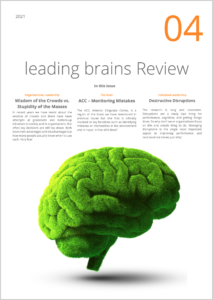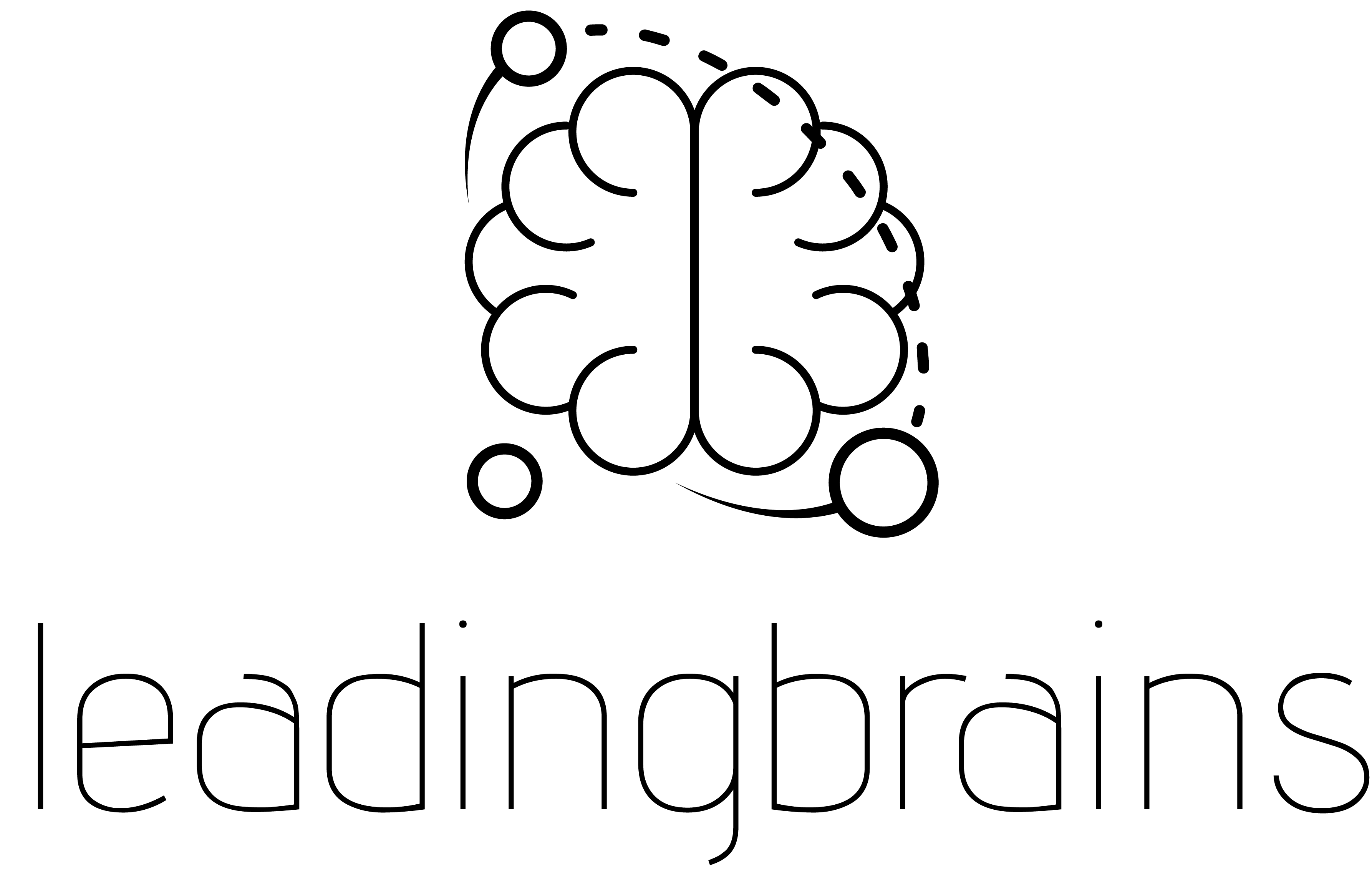leading brains Review 2021-04 has been released. And plenty of interesting, fascinating, scientific, and surprising information in this for everyone!
You can buy the issue here for $6.70
Or subscribe monthly with a free 30-day trial period (last issue and next issue for free) for $4.70/month after trial period

Quick Hits
Monthly round up of what is coming out of the rich field of research into the brain and behaviour
Part 1: Society Brains
Negativity Bias: Is the world really such a bad place?
Reading a newspaper can be pretty depressing experience and indeed one of the tips for happiness is to not read the newspaper or listen to the news. The one reason is the concept known as negativity bias where negative events and dangerous threats take priority over better news or more benign information. Is this the case and what can we do about it?
Part 2: Healthy Brains
The Power of Sleep: The most underrated aspect of brain health
When we read about hacking the brain we may read about techniques, training, nutrition, even zapping the brain with electricity, or various supposed brain stimulants. But nature has developed the most powerful tool for brain growth, learning, and detoxification. It’s called sleep. Let’s review.
Part 3: Learning Brains
Surprise, Surprise! Why the brain is wired to learn with surprise
Memories of my school days are of teachers droning on. We now know that stimulus is important, but it is not only stimulus that counts. The research shows that surprise is an important element to learning – so much so in fact that some people claim that surprise minimisation is one of the most essential features of human learning.
Part 4: Business Brains
Organsational Leadership
Wisdom of the Crowd or Stupidity of the Masses: When to use what as a business leader
Recently many forms of crowd sourcing have moved into the mainstream. It has also become understood that innovation is a collaborative process and companies have aimed to take advantage of this. Group intelligence is therefore on the rise. But what does the science say about this – we know that groups can collectively make better decision than experts, but they can also move as mindless herds with terrible consequences. This month I break down when crowds can be wise and stupid.
Decision Making
Outcome Bias: Why results can overshadow good and bad decision making
Results, results, results. That’s what counts – of course, it makes sense. But results can be the result of fluke and chance. How do we distinguish between bad decision making that has a fluke positive outcome, and good decision making that has a fluke bad outcome? It’s hard because, as I show, our brains are wired to measure outcomes and not processes.
Team Leadership
A Sense of Achievement: Why achieving things is critical for motivation and engagement
In the world of being on all the time and many people in big business working in big projects across countries it can be hard to control how quickly and successfully things get done. Collaboration is a good thing, but the reason this is important is that a sense of achievement, and completion is great for lowering stress, improving engagement, and also wellbeing.
Individual Leadership
Destructive Disruptions: How destructive are disruptions really – really destructive according to the research
Interruptions are the simplest way to reduce cognitive ability and productivity – so why don’t businesses do more to counteract them? Beats me!
Part 5: The Brain
Brain Region in Focus
ACC – Monitoring Mistakes: The brain region that does everything – kind of?
The Anterior Cingulate Cortex (ACC) has been ascribed multiple functions including monitoring of mistakes – but it seems to be involved in an awful lot. Just what does it do?
Research Technology
Brain Control Through Light: The amazing field of optogenetics
Genetically encoding neurons with genes from green algae may sound like a weird thing to do, but in the case of optogenetics this is precisely what enables unthinkable views of how the brain works. Fortunately, or unfortunately, this is only carried out on mice and rats – but the ability to research brain function is nothing short of astounding.

Recent Comments